Teaching
Courses I teach:
Introductory Geology - ESC 190 (Fall, Spring)
Historical Geology - ESC 190 (Spring)
Sedimentology and Stratigraphy - ESC 310 (Fall)
Petroleum Geology - ESC 415 (irregular offerings)
Course descriptions:
Introductory Geology - ESC 190
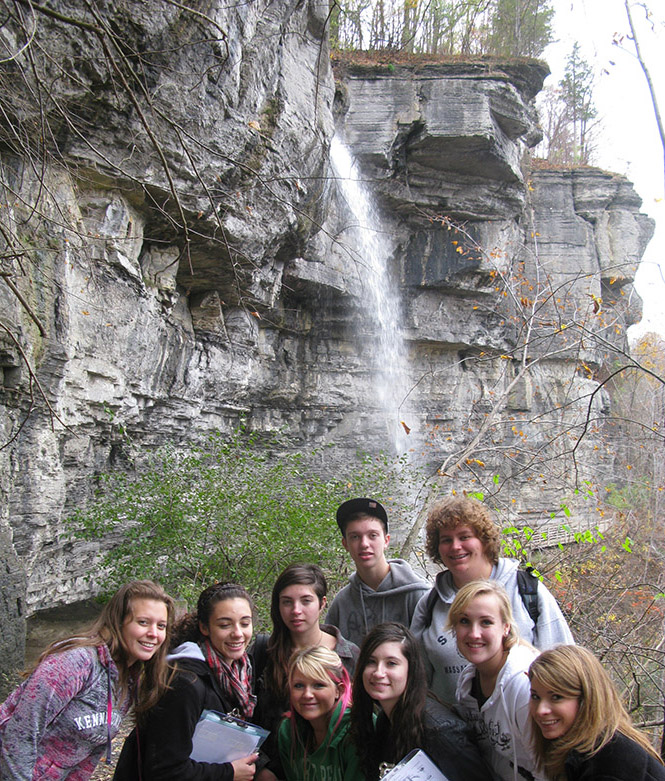
In Introductory Geology, we explore the exciting effects of plate tectonic activity, including earthquakes, volcanoes, folds, faults, and mountains, and we learn about surface processes that affect our everyday lives, such as the movement of water and the erosion of landscapes. We become familiar with rocks and minerals both in lab and on field trips, and we visit sand dunes at the Albany Pine Bush Preserve, wooded streams at Five Rivers Environmental Education Center, and limestone cliffs laden with fossils at Thacher Park. We talk about environmental issues and climate change.
Indian Ladder Trail, Thacher Park field trip, ESC 190,
Fall 2012.
Historical Geology - ESC 190
In Historical Geology, we discuss the history of the Earth from its formation about 4.6 billion years ago to the present. The focus is on the evolution of land forms (mountains, plains, ocean basins) and the development and evolution of life forms (both plants and animals). The framework is the geologic time scale and the successive sequences and events that are characteristic of each of several time intervals, beginning with the earliest Precambrian and continuing to the recent. Some labs focus on interpretation of landforms; in particular, the interpretation and use of geological maps, correlation of rock units, and the concept of lateral and vertical facies changes and facies maps. Other labs focus on the fossil record, with visual study and identification of fossils along with their use in depositional environment interpretation. We take several field trips during the semester.
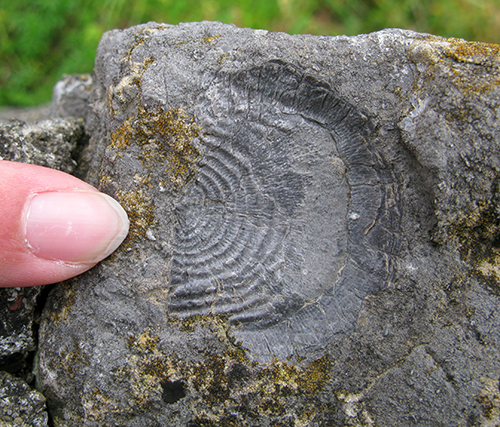
Right: Extinct Devonian Leptaena brachiopod in limestone of the New Scotland Formation, John Boyd Thacher State Park.
Below: Examining stromatolites at Petrified Gardens in Saratoga Springs, NY
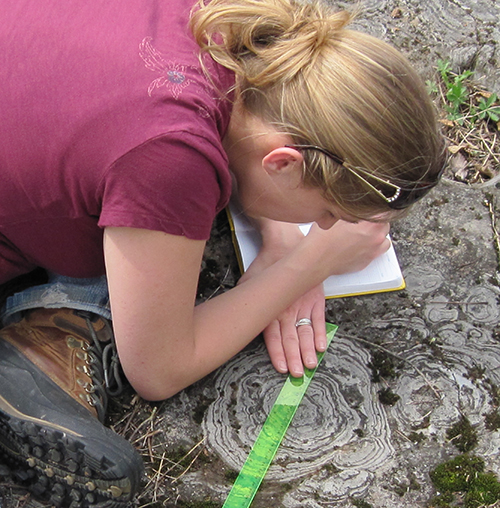
Sedimentology and Stratigraphy - ESC 310
In Sedimentology and Stratigraphy we study principles of depositional processes (sedimentology) and stratigraphy (including field mapping principles and exercises). The course is a systematic discussion of the mechanics of erosion, transportation, and deposition and how these control the ultimate disposition of sediments. Special emphasis is put on the stratigraphy of New York State. Lab includes field trips to study rocks that were formed in varied depositional environments.
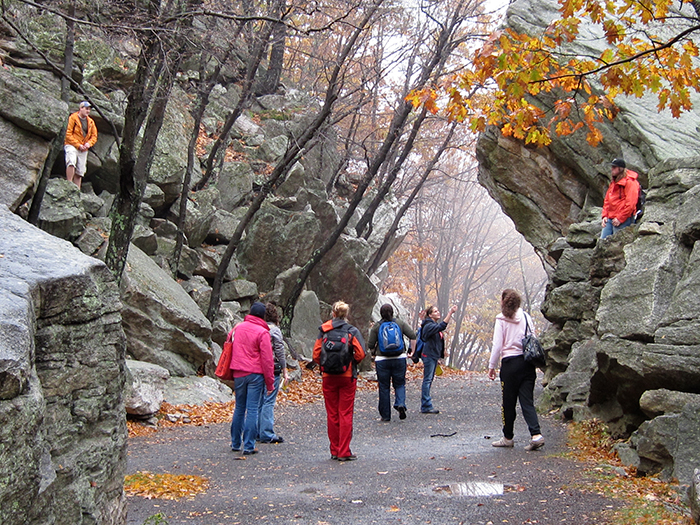
Field trip to the Silurian conglomerates of the Shawangunks near New Paltz, NY.
Petroleum Geology - ESC 415
Petroleum Geology is an introduction to the elements and processes of petroleum systems, the geological and geophysical methods used in petroleum exploration, and the importance that petroleum has played in emerging and industrial economies. Topics include the origin of oil and gas, source rock characterization, expulsion and secondary migration, reservoir characterization, traps, seals, subsurface methods of seismic stratigraphy and petrophysical logging techniques, and basin analysis. Students will give oral presentations of case histories of producing fields worldwide and prepare a written report on an assigned project. Lab provides an introduction to geophysical well logging methods (petrophysics) for evaluating oil and gas wells.
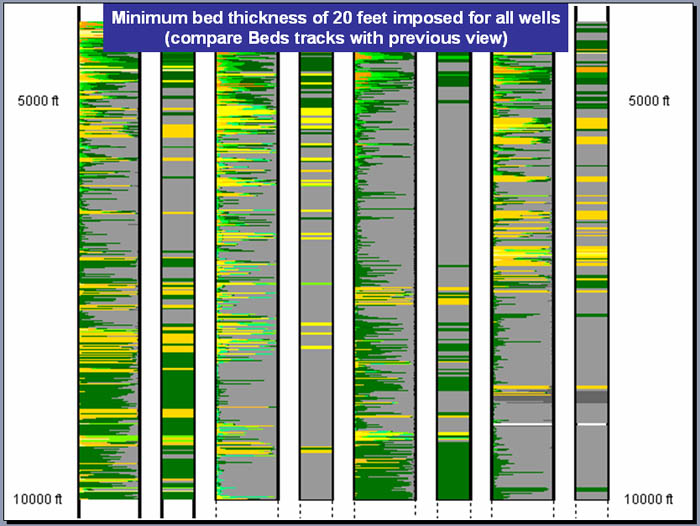
Analysis of well logs using GAMLS software.
Office: 300-1 Albertus Hall
Mailing address: The College of Saint Rose, 432 Western Avenue, Albany, NY 12203
Office phone: 518-337-4922
Email: e.eslinger AT gmail.com
